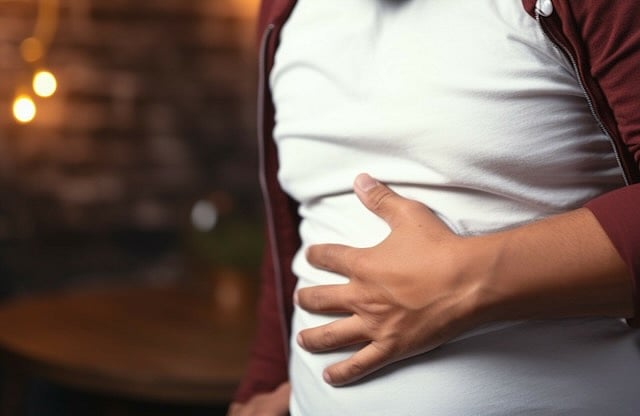THANK YOU!
Get Healthy!

- Robin Foster
- Posted November 16, 2024
Bloated After That Holiday Meal? What's Normal, What's Not
As the holidays approach, most folks are familiar with a common side effect of the overindulgence that can come with all those meals with family and friends: Bloating.
Luckily, Baylor College of Medicine gastroenterologist Dr. David Szafron has some tips on what triggers bloating, what kinds of foods are big triggers for it and when you need to see a doctor.
First, bloating is defined as a feeling of trapped gas in the abdomen, fullness or abdominal pressure, Szafron said. It can last from a few minutes to a few hours, depending on what triggered it.
So, what are some of those triggers?
"We are still learning the ways bloating can occur," Szafron said in a Baylor news release. "Some of the most common causes are from food [and how our body processes it], medications, imbalances in our gut bacteria, changes in gut motility, prior surgery, constipation and disorders of gut-brain interaction [such as increased sensitivity of the nerves in the gut]."
What are the two worst offenders as far as food goes?
Two major culprits can be lactose and fructose, Safron noted.
"As we age, many of us lose the enzymes needed to effectively digest these carbohydrates, which can lead to bloating," he said. "Some of these are asparagus, cauliflower, garlic, onions, mushrooms, apples, cherries, mangos, peaches, pears, watermelon, chickpeas, wheat flour, most pasta, cream cheese, cow’s milk, oat milk, soy milk, beans, tofu, sausage, cashews and pistachios."
Even artificial sugars such as mannitol, xylitol and sorbitol can cause bloating.
While everyone experiences bloating at some point, if it happens more than once a week over the course of several months, it might be time to use a food diary to figure out which foods are giving you trouble.
Often, a pattern will emerge that spots which foods you should avoid or eat in moderation, Szafron said.
Beyond dietary changes, exercise and good bowel habits can also help prevent bloating.
Exercise can help stimulate the bowel and ease the symptoms of bloating. When eating foods that may trigger bloating, smaller portions can also minimize bloating.
If you still experience bloating and it becomes severe enough to cause weight loss, vomiting or severe pain, see your doctor promptly, Szafron said.
More information
Johns Hopkins has more on bloating.
SOURCE: Baylor College of Medicine, news release, Oct. 29, 2024







